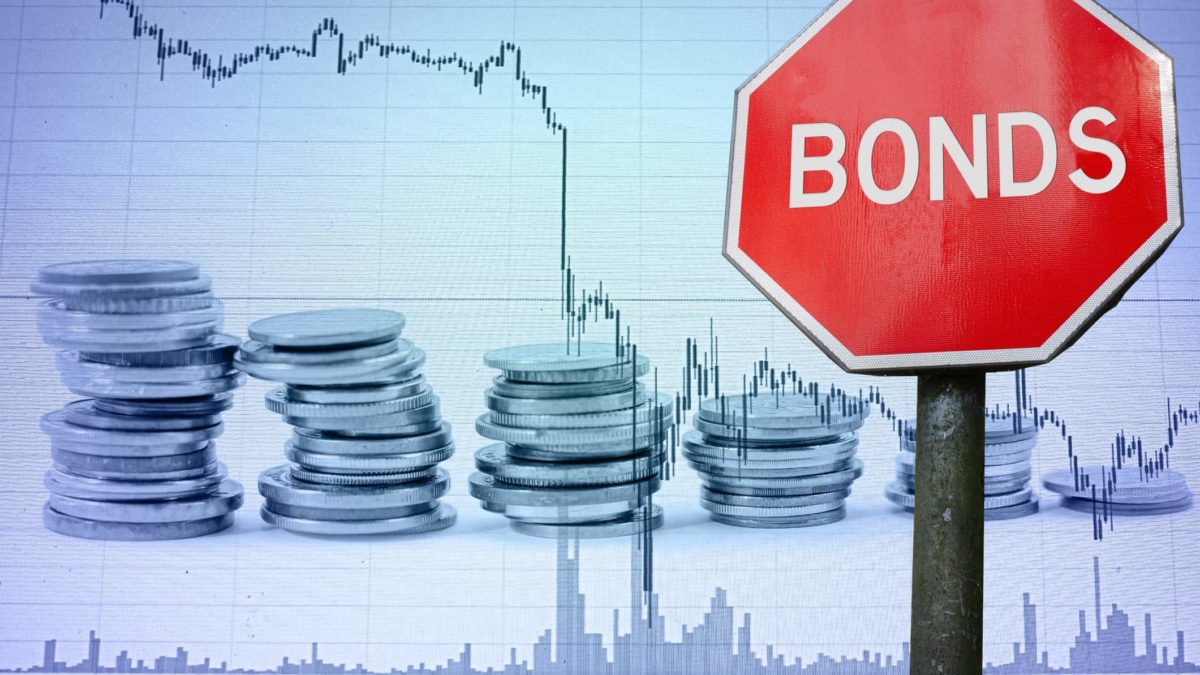The S&P/ASX 200 Index (ASX: XJO) did not have a great week this week. From Monday to Friday, the ASX 200 went backwards by roughly 1.5%.
That was pretty much caused by more than a 2% loss on Friday alone as investors responded to a sharp sell-off on Wall Street on Thursday night (our time). The ASX 200 has now wiped out all of its year-to-date gains at these levels, and then some.
But another market had an even worse week than the Aussie share market. And it might have more of an impact on the world of investing that you may realise.
According to reporting in the Australian Financial Review (AFR) last week, the bond markets had "a bloodbath". The report called it "one of the worst bloodbaths long-duration bond lovers have endured since the great crash of 1994".
Now, if that sounds like boring gobbledygook to you, let me explain before you leave.
Bonds and ASX shares
Yes, bonds don't have the kind of heart-stopping drama that the share market gives us in spades. But it is still a very important market to watch if you own ASX shares.
The global bond market is actually orders of magnitude bigger than the global share market. That has been helped in recent years (and over the past year in particular) by the record amount of government deficits and money printing/quantitative easing (QE) programs that have proliferated in response to the coronavirus pandemic.
So what has triggered this 'bloodbath'? Well, the report states that it's a "massive jump in 10-year Australian interest rates, which have more than doubled since November [and] hammered the price of fixed-rate… bonds".
The government issues bonds to fund government spending. Think of a bond as essentially a loan to a government.
That loan comes with interest, of course. These bonds are sold on the 'bond market', which operates in a very similar manner to the share market. Buyers and sellers work together to determine the price of bonds. Well, that's what used to happen, anyway.
These days, the bond market is rife with government intervention. Our own Reserve Bank of Australia (RBA) has an official policy to keep government bond yields at around 0.1%. To do this, it buys bonds when the yield gets too high.
Earlier this month, the RBA announced another $100 billion in bond purchases, which means the RBA will be buying about $5 billion worth of government bonds every week until at least April.
This is supposed to help the economy by keeping other interest rates around the economy (like those on mortgages and business loans) very low.
So why are yields rising?
Despite the RBA efforts, the AFR report tells us that long-term interest rates have doubled since November. And that's because investors are starting to look ahead of the pandemic to possible inflation.
Over in the United States, Congress is currently debating whether to pass a mammoth near-US$2 trillion stimulus package. That equates to around 15% of the USA's annual gross domestic product (GDP), which could easily result in inflation if the US economy responds to the stimulus more enthusiastically than expected. That could, in turn, spill over into the Australian economy.
The AFR also asserts that Australia's better than average handling of the pandemic, together with our late-to-the-show embrace of QE, is also partly to blame for the rise in bond yields.
But how does this affect ASX share market investors?
Well, government bonds are considered a 'risk-free' asset. Since a government can't really go bankrupt, a bondholder is virtually guaranteed to get their money back when the bond expires.
But the price of the 10-year government bond, as a risk-free asset, is what's normally used to judge the valuation of risk-on assets. Like ASX shares.
Put simply, it's usually the case that when Australian government bond yields rise, the value of ASX shares fall. Generally speaking, of course.
So this rise in Australian government bond yields over the past few months or so could well be partly to blame for the ASX 200's rather lacklustre start to the year.
So, as boring as it may be for some, this is a market worth keeping an eye on over the next few weeks and months!









